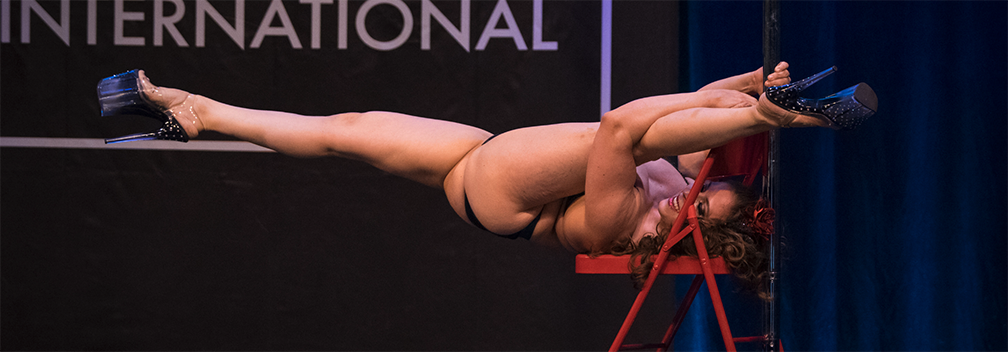Thank you to everyone who took our survey! We read every response. <3 *this is…
Tax Tips for Pole-fessionals
(originally published on the Bad Kitty Blog January 2018)
It’s that time again – that’s right, it’s tax season. Dun dun DUNNNN!!! But don’t be scared, here are all the things you need to know if you are a full-time or part-time pole teacher or if you own your own pole-based business.
I’m not an accountant, however, I have the dubious distinction of being audited recently (in the past three years) while owning several pole and non-pole businesses including an international one. I’ve both worked with accountants AND done my own taxes using TurboTax. I don’t have all the answers however, I do have some useful perspective relevant to our industry. Please do your own research, talk to your financial counselors (either official like a financial advisor you pay or unofficial like your mentor or parents) and make the decisions that make the most sense for your life and your business(es) with regards to your personal taxes.
This blog is focused on pole teachers and those with LLC-structured businesses. If you have a larger pole business (making more than $1,000/month), it’s definitely worth it to talk to an accountant and confirm you legally have set your business up correctly for your individual situation BEFORE tax season. And if this is news to you – start now! There’s always time to update how you run your business or update/change things as your business grows and your personal life changes (marriage, kids, buying a house, quitting a day job and other life events all qualify!) There are many different considerations to review before deciding how to set up your company to maximize your tax benefit.
What to Expect
As of late last year, the tax law has officially changed. Tax law changes and updates every year although these changes were a bit more drastic than usual. Read more about it here.
Income
Legally, anyone who paid you as an employee or paid you more than $600 as a contract employee over the previous year (also known as an independent contractor) must report that information to the IRS and must also send you a copy of that reporting documentation by January 31st.
Depending on your situation, you might receive a W2 from your regular studio and your day job AND a 1099 from teaching at a convention or event.
- W2: if you are full-time or part-time employee of a studio you will receive this outlining your income and taxes paid out of your income at the federal and state level.
- 1099: if you were a contractor and employed as an independent contractor at a studio, as a traveling workshop leader, or at convention/event you will receive this type of document specifying your income paid. If you are legally set up as a corporation (rather than a LLC) then you may not be sent a 1099. If you were paid less than $600 then you may not be sent a 1099. Taxes have not been taken out of this income.
Other income: If you generated any other income such as from performing, selling merchandise, etc. through cash, PayPal, Venmo or other that is less than $600 at a time then you should report this income on your taxes.
If you own your own LLC-structured, pole-based business, make sure you set up a separate bank account as soon as possible. This makes it so much easier to track EVERY transaction even small ones. If you own your own business and you legally have an LLC, then you should report every bit of income received even if it’s in $20 chunks on your personal taxes as an LLC is a flow-through entity for income and expenses.
Audit Concerns: If you get audited, the auditor may ask to clarify ANY money (even less than $600 chunks) added to your checking account (personal or business) that is not accounted for in your “regular” pay check or in any moneys already reported (such as on a 1099). They will ask for things like your PayPal statements to cross reference with you deposits and if they determine that you this is unreported income (not $100 from your grandma for your birthday) then you may have to pay retroactive taxes on that money which also may include fees and interest.
Deductions
There are lots and lots of deductions that you might qualify for on your personal taxes including, but not limited to, mortgage interest deductions, student loan deductions, charitable deductions, and more. For pole teachers and pole business owners, always choose to itemize your deductions! It takes time but it’s almost always worth it and will help you save money. This is particularly important if you were not paid as an employee but as a contractor.
Always save your receipts! Especially relevant receipts from large retailers that have lots of stuff like Amazon, Target, or Walmart that only show up on your credit card statement as “Amazon.” It is harder to explain to an auditor that it wasn’t groceries you were trying to claim as legitimate business expenses without a detailed receipt.
If you have an LLC, then you MUST keep track of all expenses related to your business and you must report these expenses on your taxes in addition to your business-related income. Try using a tool like Quickbooks.com to help you track all relevant expenses such as marketing, software, professional services, contract employees and more. All income and expenses for your LLC business flow through to your personal taxes so it is very important that you have tracked this information carefully to avoid paying more taxes than you need to.
Things you can deduct as a pole teacher:
Uniforms* Be very careful with your interpretation of this one. Generally, a uniform should be something you wouldn’t wear outside of your job as a pole dance teacher or pole-fessional. You could include:
- Shoes
- Fitness/active/pole wear you don’t wear outside of the studio
- Costumes for competitions or paying gigs.
Audit Concerns: This was the ONLY area that my auditor fought me on and ultimately concluded that I could NOT deduct. I tried to explain I don’t wear my Bad Kitty® Brazils outside of the studio but he didn’t believe me! All of the remaining deduction recommendations below were 100% allowed by my auditor.
Health Care/Medical related to your job as a pole dance instructor might include the following costs:
- Sports Massage
- Acupuncture
- Chiropractic
- Injury related services or equipment.
Any Training Aids/Equipment that are related to your business/job as a pole dance instructor:
- Things you bought specifically for use in class
- Tools for stretching
- Tools for myofascial release
- Equipment (poles, lyra, mats, etc.).
Education related to being a pole dance instructor:
- Workshops with pole stars or other
- Personal Trainer sessions
- Contortion coach sessions
- Nutrition counseling
- Gym memberships
- Books related to training/fitness/dance education
- Pole tutorial memberships
- App purchases for relevant training apps (like StetchIt! for instance)
- Fitness (or other relevant) certifications/memberships.
Travel:
- All travel associated with education (such as flying to PoleCon)
- All travel associated with performance gigs (such as parking garage fees)
- All travel associated with competitions (only if you are being paid as a pole dance instructor – not for people who are competitors but do not make money through pole, you can also include the competition fees but do NOT include the ticket cost for your friend who came to cheer you on)
- All travel associated with business development for your business (if applicable)
Other:
If you run your business from your home, you may qualify for a home office deduction. You may also qualify to include other expenses such as hardware or software expenses related to running your business (such as buying Turbo Tax, Quickbooks or Microsoft Office).
Likely Tax Scenario
So what does a likely scenario look like for your taxes? Here’s my real-life example of what I expect for my taxes this year which I will be doing using TurboTax and not an accountant (more on that below):
Income:
- W2 from my old day job
- W2 from my new day job
- W2 from each of the two studios where I am a part-time employee
- 1099 from one of my private marketing clients who has paid me more than $600 in a year
- All PoleCon-related income and expenses
- My husband’s W2 from his day job and his old day job
- Schedule K-1 from my day job (where I was part owner)
Deductions:
- All my pole teacher related expenses such as paying for nutrition counseling, taking workshops and buying contortion online training
- All my husband’s deductions related to his pole photography business
- Home/property deductions
- Student loan deductions
- Charitable deductions
Is it a lot? It sure is!
Audit Concerns: A lot of people who have left their day jobs or are in the process of starting their own pole-based “side hustle” businesses have told me how worried they are about “doing something wrong” on their taxes and getting in “trouble” or owing “tons of money.” From personal experience when I was audited, I was working with an accountant to do my taxes. My accountant acted as an intermediary for most interactions with the auditor and helped me understand what things the auditor was asking for and why. I still had to pull all the information together and meet with the auditor to explain things for hours (seriously it was torture – somehow I got the most hardcore auditor my accountant and her entire company had EVER seen). Since my taxes are kinda complicated, this took MANY hours and I paid for every single hour that she assisted in the process. Which meant not only did I owe some money back to the IRS, I also had to pay her. It felt like adding insult to injury! The following year, in an effort to save money, I did my own taxes again (I had previously done my own taxes for years) using Turbo Tax which I had used previously. The system is very easy to use and asks you common sense questions to help you answer as accurately as possible. Once you submit your taxes, you have the option to add a product called “Audit Defense” for a very low cost. In the event you are audited, TurboTax will represent you for FREE. A friend of mine in a strange twist of fate was audited at the same time I was and he used Turbo Tax and the Audit Defense product. They provided the same level of cost for a fraction of what I paid my accountant. The morale of the story is – even if you are afraid of doing things yourself, if the event you are audited you will still be supported for a reasonable price.
Conclusion
I know it’s a lot and you’re probably still worried about your taxes this year. Unfortunately, people who are independent contractors face more scrutiny than those that only receive and report W2 income. This doesn’t mean it’s impossible to do your taxes and this doesn’t mean in the unlikely event you are audited (auditing is at an all time low! ) that you’re life is over. Was the audit I went through uncomfortable and time-consuming? ABSOLUTELY! But it wasn’t the end of the world.
Keep calm, keep your receipts, and good luck!
Latest posts by Colleen (see all)
- PoleCon 2025 Updates from the Survey - June 20, 2025
- PoleCon Hub Page: MORE Black Voices - June 13, 2025
- PoleCon 2025: Recap - June 4, 2025


